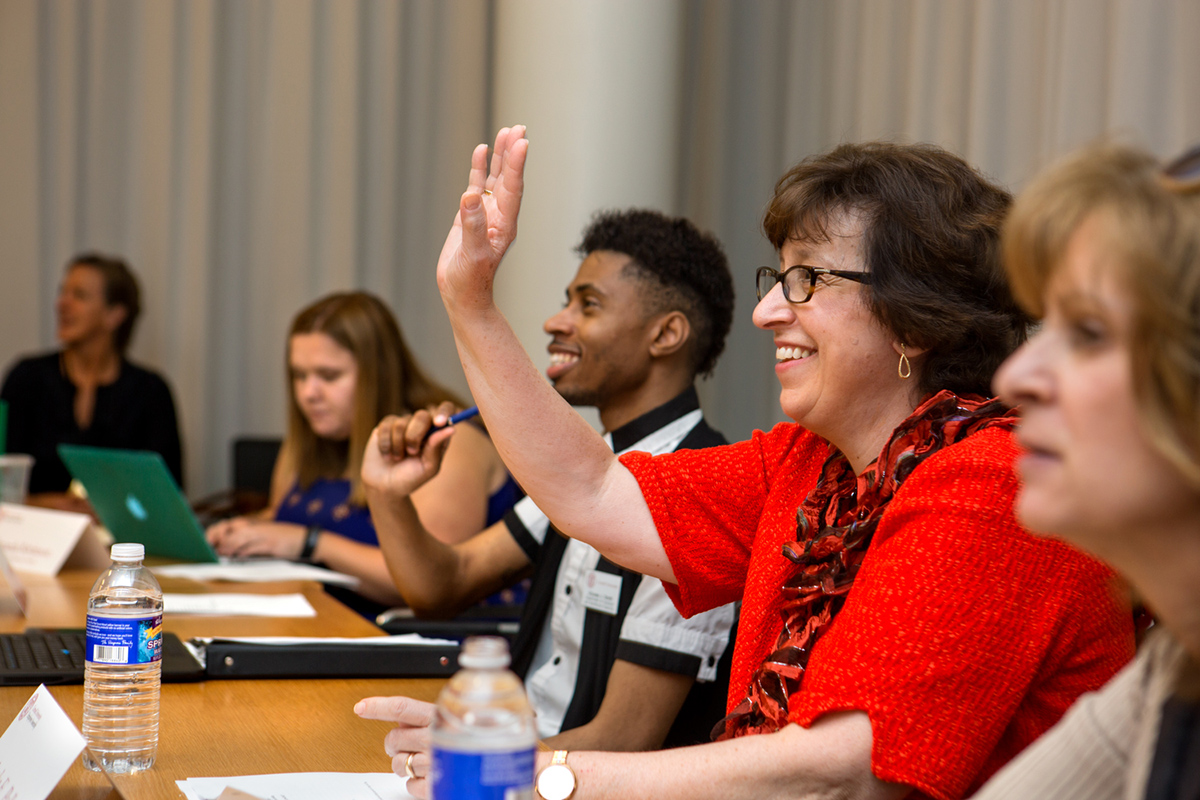At EA meeting, Pollack affirms the 'core work' of staff
By Nancy Doolittle

In the last spring meeting of the Employee Assembly May 17, Cornell President Martha E. Pollack fielded questions from EA members about some of the most complex concerns affecting staff at the Ithaca and Geneva campuses. These ranged from public transportation, affordable housing and accessibility challenges to international student and staff uncertainties in the wake of changes to federal immigration policies.
None have easy answers, Pollack acknowledged, but she gave some indication on how she plans to approach them. Her first few months on campus will be spent listening, she said, learning from everyone, including staff, and coming to understand the university’s culture and priorities before developing a long-term vision.
Pollack said she was drawn to Cornell’s core values: its being both an Ivy League and a land-grant university, committed to world-class academics as well as outreach and engagement; its commitment since its founding to diversity; the combination of the “magical” Ithaca campus focused on scholarship and the campuses in the “world’s greatest city,” New York; and the opportunities that can open up for people in upstate and downstate New York through fostering the “One Cornell” concept.
In response to the question, “How can we, in the Employee Assembly, support you?” Pollack said, “Let me know what’s going on.” Faculty and students share their views, and staff should too, she said. “We talk about faculty as doing the core work of the university in teaching and research – but they cannot do what they do without staff, and the university can’t run without staff. So, by extension, I really do believe that all you do is core work at the university as well. … Your voices are important, and your opinions are important.”
She urged the EA to work through Vice President and Chief Human Resources Officer Mary Opperman to convey their concerns or messages upward. “She will be a really good conduit of information,” she said.
Pollack said she and Opperman have been talking about the employee survey administered last fall, focusing on the sense of disconnectedness some staff expressed in the survey, and looking at ways to align staff activity to – and make staff fully aware of their part in – the university’s mission.
“I really think that the basis of any good relationship is trust,” she said. “If people trust each other, even if you don’t agree on things, you still can make progress.”
Media Contact
Get Cornell news delivered right to your inbox.
Subscribe